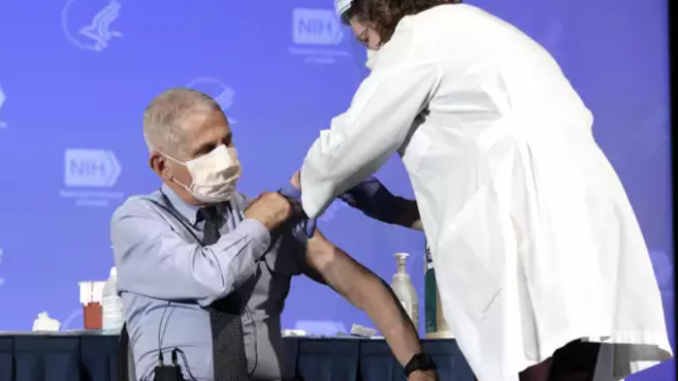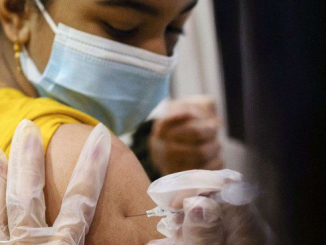
Prominent American cardiologist Dr. Peter McCullough says COVID-19 vaccines should have been pulled off the market in January of 2021 due to safety concerns.
“When we hit a threshold for excess death, it should have been pulled off the market,” he said during a recent special on the “Just the News, No Noise” TV show sponsored by The Wellness Company.
“By my estimation, that probably should have happened in January of 2021. It should have been a very short run for these vaccines like it would for any other safety problem. Instead, here we are over three years later.”
{snip}
In January, Florida’s top doctor called for the halt of COVID-19 mRNA vaccine use.
State Surgeon General Dr. Joseph Ladapo said he made the call after the FDA failed to address his concerns about “Lipid nanoparticles,” which deliver the mRNA in vaccines into human cells but also may be “an equally efficient vehicle for delivering contaminant DNA into human cells.”
The Centers for Disease and Prevention has addressed concerns about “adverse events” related to the vaccines, saying they “meet the Food and Drug Administration’s standards for safety and effectiveness” and that only in “rare cases” have people experienced serious health events as a result of getting an initial shot or booster.
The CDC says “adverse event” can be caused either by the vaccine or be a “coincidental event” unrelated to the vaccine, such as a fever, which occasionally happens after getting a vaccination.
{snip}
The CDC also says myocarditis and pericarditis after COVID-19 vaccination are rare.
In 2020, McCullough wrote an op-ed published in The Hill newspaper titled, “The great gamble of COVID-19 vaccine development,” in which he cautioned about the singular focus on vaccines from agencies such as the CDE, and not other alternatives for treating and preventing the illness.
“They never gave multi-drug treatment protocols even a second chance,” he said on the recent Just the News special. “There was an early two-drug protocol that was shut down after just a few days. They had fully funded this program. There were novel drugs from Japan and elsewhere that never saw the light of day.”
McCullough went on to say one of the pillars of a pandemic is controlling the congestion or “reducing the spread.”
“Our government focused on things that didn’t work including masking, hand sanitizers and lockdowns,” he said. “It turns out one intervention did work, and that was the use of virucidal nasal sprays and washes. This is very important. So certain nasal sprays really do reduce spread of the virus.”
{snip}
“We never should have brought or used a vaccine across the general population,” said McCullough. “All that did was cause the virus to mutate and caused it to be able to work its way around the vaccine.”
He also argued that the vaccine implementation actually prolonged the pandemic.
Wisconsin GOP Sen. Ron Johnson has been one of the most outspoken critics regarding the COVID-19 vaccine and for those injured by it.
Last year, he wrote a letter to the CDC alleging that the agency worked with social media companies to censor information regarding the vaccine.
“Based on recent information I have received … it is clear that CDC abused its authority by engaging in a censorship campaign to suppress and discredit certain viewpoints it labeled as ‘misinformation,’” Johnson wrote in the letter.
{snip}
Also last year, Texas GOP Attorney General Ken Paxton announced a lawsuit against Pfizer, claiming that the company misrepresented the effectiveness of the vaccine to its consumers.
“Pfizer did not tell the truth about their COVID-19 vaccines,” he said. “Whereas the Biden Administration weaponized the pandemic to force illegal public health decrees on the public and enrich pharmaceutical companies, I will use every tool I have to protect our citizens who were misled and harmed by Pfizer’s actions.”
* Original Article:
https://justthenews.com/politics-policy/health/wkd-prominent-cardiologist-says-covid-19-vaccine-should-have-been-pulled

